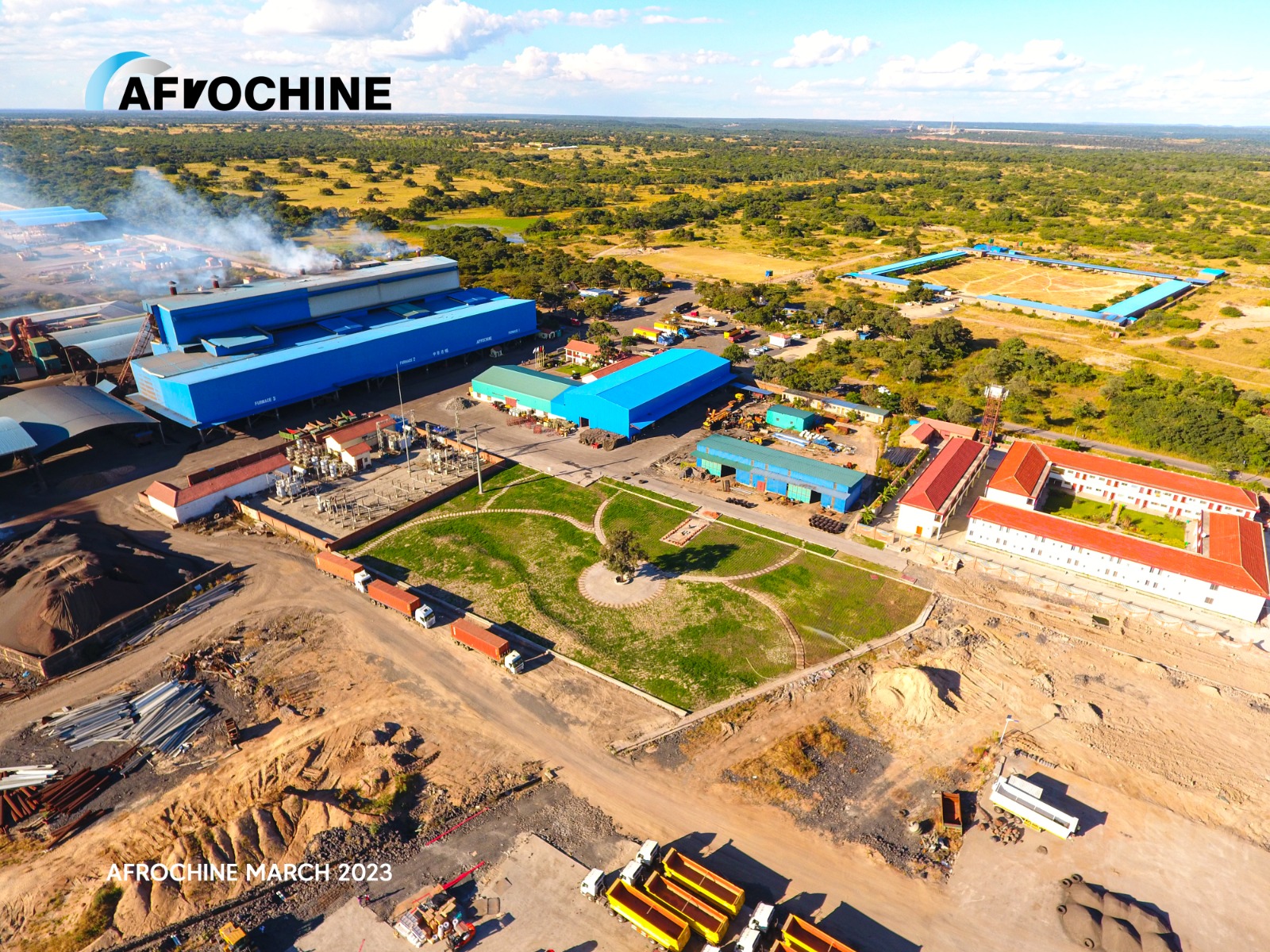In a significant ruling, the Supreme Court of Zimbabwe has upheld the Zimbabwe Revenue Authority’s (ZIMRA) determination that Afrochine Smelting (Private) Limited must calculate its royalties based on the gross fair market value of the ferrochrome it sold, rejecting the company’s claim to deduct freight charges from the sale price, Mining Zimbabwe can report.
By Ryan Chigoche
The case has set an important precedent for how mining royalties should be calculated, reaffirming the government’s stance on ensuring that the value of minerals extracted is not artificially lowered for tax purposes.
The dispute began over Afrochine’s sale of ferrochrome to XHF Hong Kong Limited between January 1, 2019, and December 31, 2021. Afrochine had agreed to sell the minerals at an ex-works price of US$0.60/lb, which included a 10-cent deduction for ocean freight from the benchmark Fastmarkets Ferro-Alloys price of US$0.70/lb. However, ZIMRA argued that Afrochine’s sale price was understated and did not accurately reflect the value of the minerals in the market.
According to ZIMRA, royalties should be calculated based on the gross fair market value of the minerals, which, in this case, ZIMRA argued should be US$0.70/lb—the price at which the ferrochrome could be sold in international markets.
The core of the case centered on the interpretation of the term “gross fair market value” as defined in Zimbabwe’s Finance Act. ZIMRA contended that this term prohibits any deductions, including freight or other shipping costs, from the sale price of the minerals when calculating royalties. According to Section 37(9) of the Finance Act, costs like transportation and beneficiation are not allowed to be deducted from the price of the minerals for the purpose of calculating royalties.
The Supreme Court sided with ZIMRA, ruling that Afrochine’s decision to deduct the freight charges from the sale price was unlawful.
The court stressed that the purpose of mining royalties is to compensate the government for the extraction of the country’s finite mineral resources and that royalties must be based on the true market value of the minerals, without any adjustments for shipping or handling costs.
By declaring the sale price at US$0.60/lb, Afrochine effectively under-declared the amount of royalties owed to the government, the court concluded.
Another key aspect of the case was whether ZIMRA had the authority to collect the underpaid royalties without obtaining a court order, as Afrochine argued. The appellant contended that Section 366 of the Mines and Minerals Act required ZIMRA to first prove its case in court before taking action to recover the unpaid royalties.
However, the court ruled that ZIMRA has the legal power to collect royalties and enforce penalties directly without needing to seek a court order. Under Section 37A of the Finance Act, ZIMRA can recover unpaid royalties, and Section 37(5) allows the authority to impose a primary civil penalty for non-compliance, which can be enforced without judicial approval.
The court’s decision reinforced ZIMRA’s authority to ensure tax compliance within the mining sector, emphasizing that the authority does not need to go through a lengthy court process to collect royalties once they are due.
This ruling also underlined the importance of accurately reporting and paying royalties based on the correct market price, as well as ZIMRA’s ability to enforce such compliance swiftly.
The case is a landmark decision for the mining sector in Zimbabwe, particularly for companies involved in the extraction and export of minerals. It clarifies that mining royalties must be calculated based on the gross fair market value, not the negotiated sale price between parties.
It also serves as a reminder to mining companies that under-declaring the value of minerals to reduce the royalty amount is a serious offense with legal and financial consequences.
For Afrochine Smelting, the ruling is a stark reminder to align its business practices with Zimbabwe’s stringent mining royalty laws. Mining companies across the country will now have to ensure that they do not deduct shipping or other related costs when determining the market value of their minerals for royalty calculations.
This case reinforces the government’s commitment to ensuring transparency and fairness in the mining sector, which is crucial for the country’s economic development.
In the end, the court dismissed the appeal, agreeing with ZIMRA’s calculations of royalties based on the gross fair market value. The appellant’s arguments were found to have no merit, and the court awarded costs to ZIMRA, noting that Afrochine’s insistence on challenging the calculations was unreasonable, given that the facts clearly supported the legality of ZIMRA’s actions. The final order was that the appeal be dismissed with costs.
Zimbabwe’s tax system is often criticized for its complexity, with businesses facing a daunting 51 different taxes, including corporate, value-added, and royalties, among others.
This intricate web of taxes has posed significant challenges to both local and foreign businesses, creating uncertainty and confusion. The case between Afrochine Smelting and the Zimbabwe Revenue Authority (ZIMRA) is the latest example highlighting the struggles businesses face within this convoluted system.
Miners, in particular, have raised concerns about the complicated nature of the tax regime, especially when it comes to calculating royalties and other deductions.
There have been ongoing calls from industry players for a simplified and more transparent tax structure that would reduce the administrative burden and foster a more conducive environment for business growth. This case underscores the need for reform, as businesses navigate the complexities of the tax system, which can often result in costly disputes.
However, the decision by the courts, especially in this case, also serves as a clear indication that mining companies must comply with the law and accurately report the value of minerals they sell to avoid penalties and ensure they contribute fairly to the country’s mineral revenue base.





